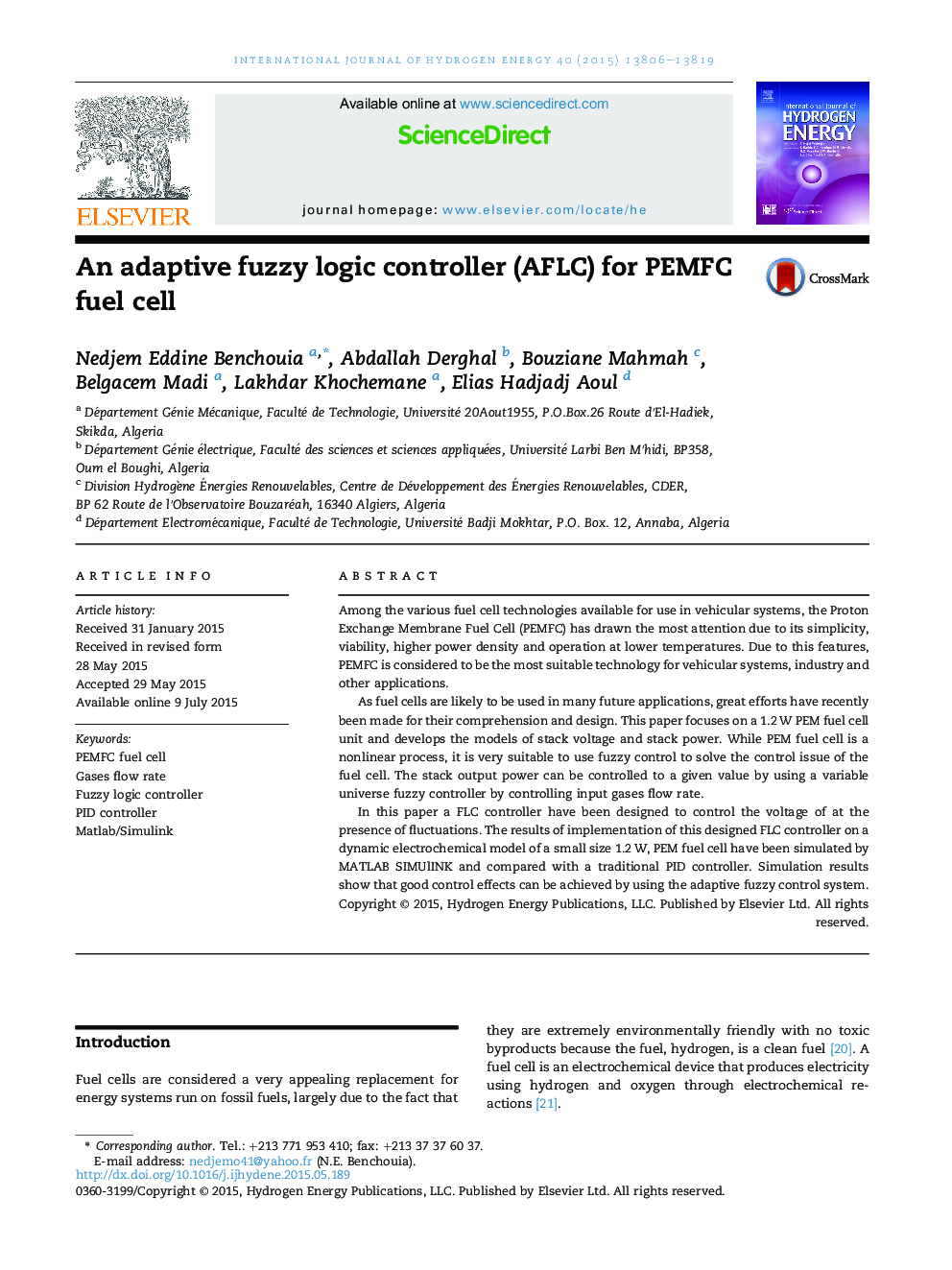| Article ID | Journal | Published Year | Pages | File Type |
|---|---|---|---|---|
| 1274674 | International Journal of Hydrogen Energy | 2015 | 14 Pages |
•The major contribution of this paper the improvement of the performance of PEMFC.•In this framework, a robust controller is developed to regulate the input hydrogen and oxygen of PEMFC.•The proposed control strategy for this kind of this system helps in delivering the maximum power of fuel cell.
Among the various fuel cell technologies available for use in vehicular systems, the Proton Exchange Membrane Fuel Cell (PEMFC) has drawn the most attention due to its simplicity, viability, higher power density and operation at lower temperatures. Due to this features, PEMFC is considered to be the most suitable technology for vehicular systems, industry and other applications.As fuel cells are likely to be used in many future applications, great efforts have recently been made for their comprehension and design. This paper focuses on a 1.2 W PEM fuel cell unit and develops the models of stack voltage and stack power. While PEM fuel cell is a nonlinear process, it is very suitable to use fuzzy control to solve the control issue of the fuel cell. The stack output power can be controlled to a given value by using a variable universe fuzzy controller by controlling input gases flow rate.In this paper a FLC controller have been designed to control the voltage of at the presence of fluctuations. The results of implementation of this designed FLC controller on a dynamic electrochemical model of a small size 1.2 W, PEM fuel cell have been simulated by MATLAB SIMUlINK and compared with a traditional PID controller. Simulation results show that good control effects can be achieved by using the adaptive fuzzy control system.
